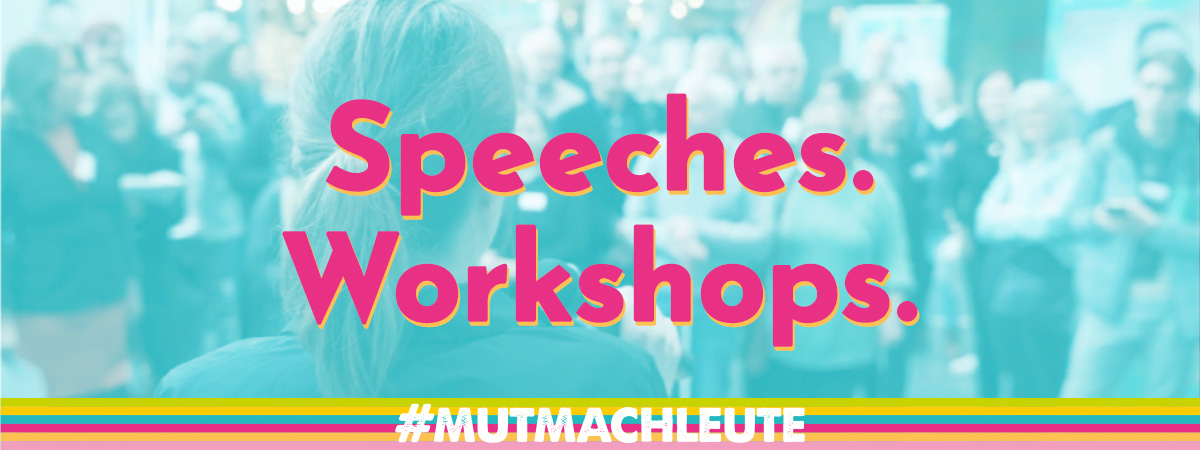Spendier uns eine Tasse Kaffee.
Wir trinken gern ein Tässchen Kaffee beim Arbeiten an unserer Webseite. Dank Dir, wenn Du uns eine spendieren magst!

Speaker: Tina Meffert, Maximilian Laufer and Simon Gall
Various factors play a role for psychological well-being and mental health in professional life: Dealing with stress, working conditions and workloads, dynamics in teams, personal residence and self-care, open exchange about one’s own psychological experience in the team, worries and fears, preventive services of companies, interventions and reintegration measures in company management – these are only examples that have an influence.
Our experiential experts and professionals take a different approach than traditional coaching. We offer an innovative and creative approach and no frontal teaching.
We offer expert discussions in different formats with mental health experts, practitioners and people with their own experience. Mental health is approached from an intersectional perspective to combat the stigma surrounding this topic and to support the audience on their mental health journey. Our experience shows: In trialogical discourse we overcome prejudices and benefit from different knowledge, perspective and experiences.
We need changes in dealing with mentally ill women*, their children and relatives, functioning reintegration measures, committed employers, functioning care and counseling services especially at the interfaces of the social security codes, equal pay and more women-oriented research and medicine. If this society, the politicians as well as the employers want to create a real equality of women*, then they must also be measured by how they counteract the intersectional discrimination and stigmatization of mentally ill women*. This takes more than lip service.
Language shapes our perceptions of feelings, experiences, and people around us. But how does this affect the concept of “normalcy” in relation to mental health? How can we be aware of how much language affects our interactions? We want to have a discourse about stigmatization and language use, and openly address and model non-violent and respectful communication. Our experts know this not only from their personal background.
We give an insight into our work and present the uniqueness of the campaign. In doing so, we additionally shed light on different aspects with regard to mental health and mental illness. We literally demonstrate the effectiveness of our public relations work. We report on special projects of the #Mutmachleute and offer an outlook on how we can break down stigmas in society as a whole, trialogically and personally, and together bring the topic of Mental Health into the public focus.
We go “where it hurts” and show how and where one can really start away from the profit-oriented mental health boom.
We help “disadvantaged” people with a background of mental illness and their relatives to take a closer look: What does language do to me? At what point does it have a discriminatory and stigmatizing effect, and how can I emancipate myself from it? How can we find a social consensus to communicate with each other without violence, and where can I start for myself in small ways?
We help participants to live with more self-confidence and self-determination by looking closely, reflecting and applying this in practice – namely in everyday life.
In small workshops we discuss with the participants their status quo. We do not work in a deficit-oriented way, but focus on their own strengths and resources. Which pillars can they still strengthen and consolidate? What do they need to do this? Every person is individual and has his or her own “matrix”. Together we want to develop perspectives and approaches. The workshop is limited to a small number of participants.
What does “being normal” mean? And is “being normal” so desirable? Who or what ultimately defines the “measure of normality” – the statistics, research, sciences and with what claim? Are individuality and conformism at odds with each other? How do social norms and imprints affect people who are affected by mental illness or their relatives? And how can self-help offer assistance in emancipating oneself from pigeonholing, from expectations, prejudices and from standing in one’s own way?
We would like to take a closer look at these questions with the participants. Perhaps there will be a thousand answers, a thousand perspectives and opinions. Because if one thing is normal, it is the individuality and uniqueness of every single person.
Together with the participants, we will explore challenges, take a look at new perspectives for self-help, and provide assistance for founding and organizing digital self-help groups and applications.
Together we will discuss: What are the biggest challenges in organizing digital self-help groups? What are the lessons learned about the advantages and disadvantages of digital self-help groups? What do the institutions and self-help activists report in terms of challenges, what are their wishes and concerns? Is the topic of “digital participation and accessibility” taken into account? Are all target groups reached? How can digital self-help be made better known to the public?
Together, we will outline perspectives and explore the opportunities and possibilities that digital self-help can offer. However, the risks of digitalization in the field of self-help should not be ignored. We are happy to provide practical suggestions on the topic as well as practical experiences from the everyday self-help life of the participants.
Of course, we can also arrange other topics. Write us!
Selbsthilfefachtag Sucht und Gesundheit der Selbsthilfekoordination Bayern, Bayreuth (2023), Workshop
Jahrestagung des Aktionsbündnisses Seelische Gesundheit, Berlin (2023), Vortrag
AWO Bezirksverband Ober- und Mittelfranken e. V., Ausstellung GRENZen erLEBEN Neustadt a.d. Aisch (2022), Vortrag
Steuerungsverbund Psychische Gesundheit, Landratsamt Starnberg (2022), Vortrag
Selbsthilfefachtagung im Landkreis Ebersberg, Landratsamt Ebersberg (2022), Vortrag und Workshop
20. Fachtagung für Mitarbeitende und Verantwortliche Sozialpsychiatrischer Dienste in Bayern, Bildungswerk Irsee (2021), Vortrag
Creative Nites, München (2018), Vortrag